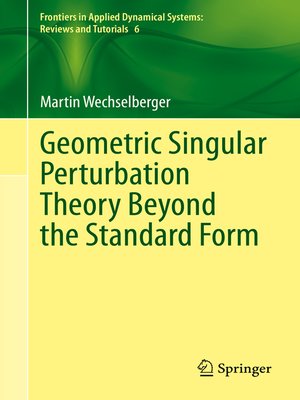Geometric Singular Perturbation Theory Beyond the Standard Form
ebook ∣ Frontiers in Applied Dynamical Systems: Reviews and Tutorials
By Martin Wechselberger

Sign up to save your library
With an OverDrive account, you can save your favorite libraries for at-a-glance information about availability. Find out more about OverDrive accounts.
Find this title in Libby, the library reading app by OverDrive.



Search for a digital library with this title
Title found at these libraries:
| Library Name | Distance |
|---|---|
| Loading... |
This volume provides a comprehensive review of multiple-scale dynamical systems. Mathematical models of such multiple-scale systems are considered singular perturbation problems, and this volume focuses on the geometric approach known as Geometric Singular Perturbation Theory (GSPT).
It is the first of its kind that introduces the GSPT in a coordinate-independent manner. This is motivated by specific examples of biochemical reaction networks, electronic circuit and mechanic oscillator models and advection-reaction-diffusion models, all with an inherent non-uniform scale splitting, which identifies these examples as singular perturbation problems beyond the standard form.
The contents cover a general framework for this GSPT beyond the standard form including canard theory, concrete applications, and instructive qualitative models. It contains many illustrations and key pointers tothe existing literature. The target audience are senior undergraduates, graduate students and researchers interested in using the GSPT toolbox in nonlinear science, either from a theoretical or an application point of view.
Martin Wechselberger is Professor at the School of Mathematics & Statistics, University of Sydney, Australia. He received the J.D. Crawford Prize in 2017 by the Society for Industrial and Applied Mathematics (SIAM) for achievements in the field of dynamical systems with multiple time-scales.







